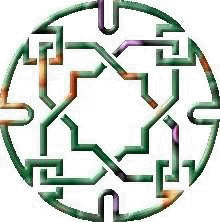

|
|

Philosophers of the Arabs

Mohammed Aziz Lahbabi (1922- 1993), a Moroccan philosopher, novelist
and poet, known by his humanistic/Islamic view applied to his philosophy of personalism.
His
Life
Lahbabi finished his secondary school in
Lahbabi was one of the founders
of the Union of Arab Writers of the
His
Philosophy
Under the influence of the
philosophy of Henry Pergson and Emmanuel Mounier, Lahbabi tried to forge a
philosophy based on an Islamic humanism, utilizing the personalist philosophy. Guided
by the Qur'an and the traditional Islamic writings, Lahbabi analyzed the autonomy of the person, the
personal consciousness, and the meaning of the individuality. In the end he
tried to reconcile Western humanist thought with Arab/Islamic thought through personalism.
Lahbabi has written in a diverse
fields, poetry, fiction, and non-fiction books on economics, politics, and
literature and some of his writings were translated to many other languages.
Some of the most important of his books are:
o
De l'Être à la Personne "On personal
being" (1954)
o
Liberté ou
Libération "Liberty of liberation" (1956)
o
Du clos à
l'ouvert (1961)
o
Le
Personnalisme Musulman "The Islamic
Personalism" (1964)
o
Le gouvernement marocain à l'aube
de XXe siècle, "The Moroccan Goverment
on the beginning of the 20th century (1968)
o
La série
L'Économie marocaine: Notions essentielles,"The
series on the Moroccan: essentials of the nations" (1977)
o
Les Fondements de l'économie marocaine, "The
fundamentals of the Moroccan economy" (1977)
o
Le Monde de demain: le
Tiers-Monde accuse "The world of tomorrow: the third world challenges"
(1980)
Romance
o
Espoir vagabond
(1972)